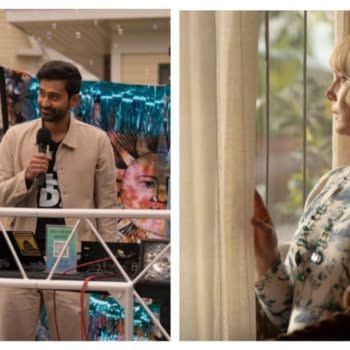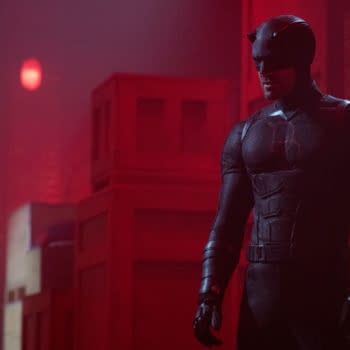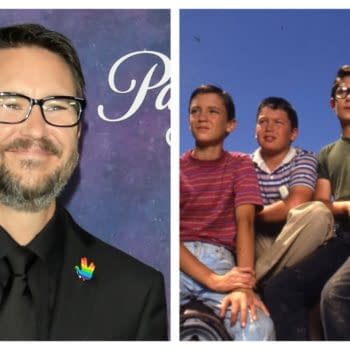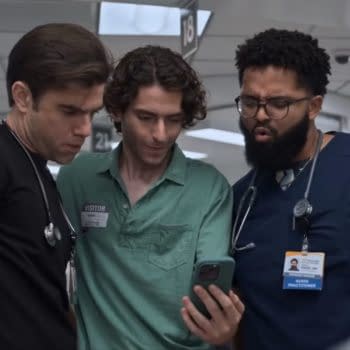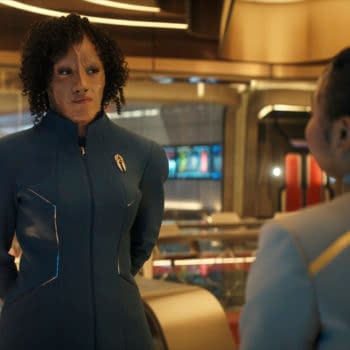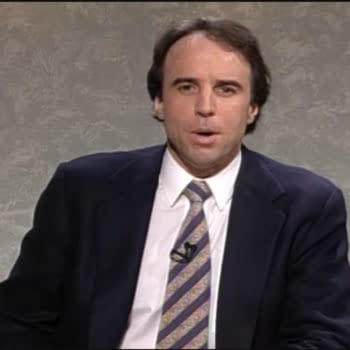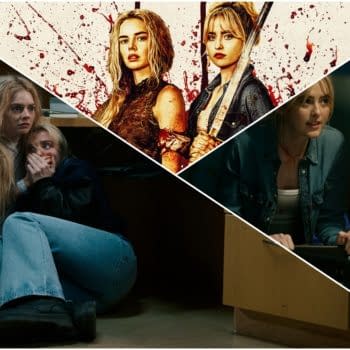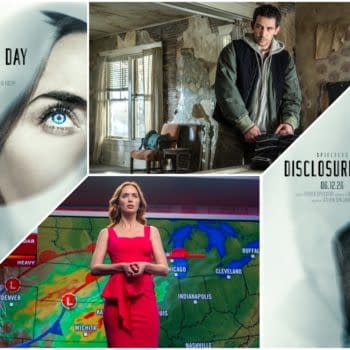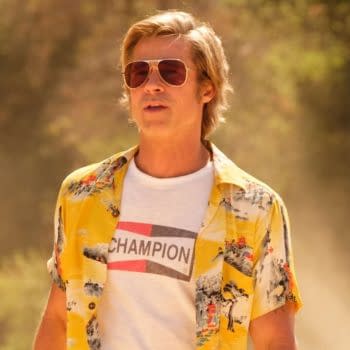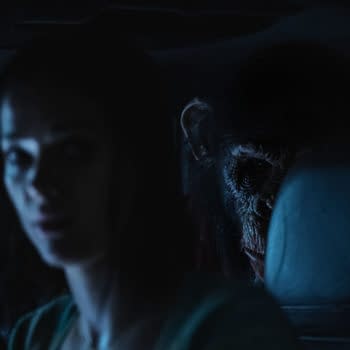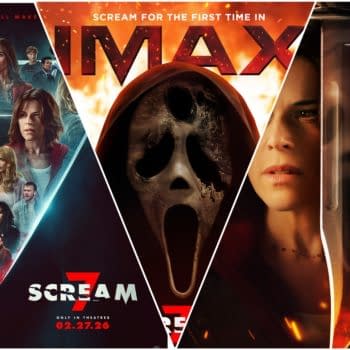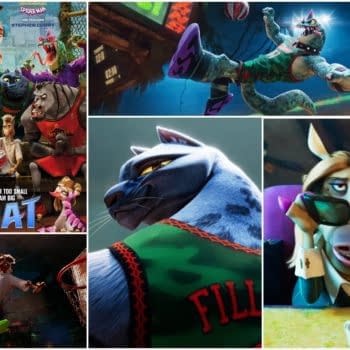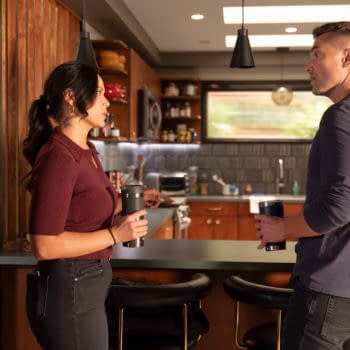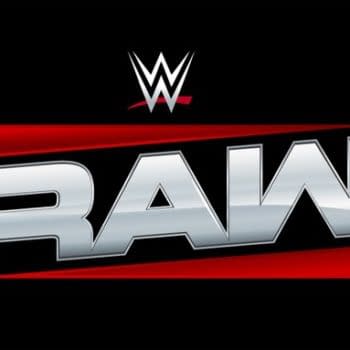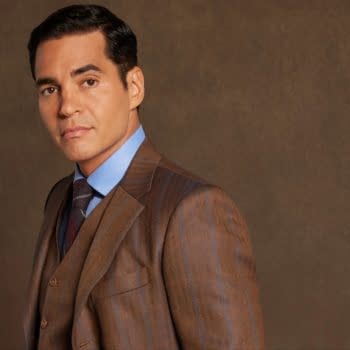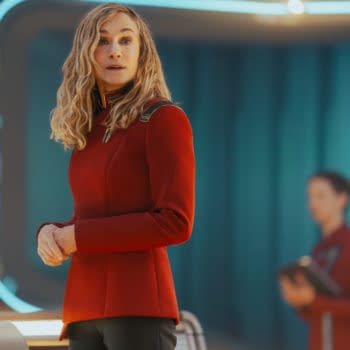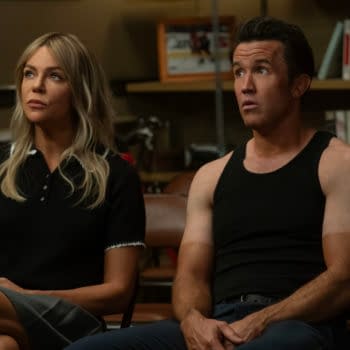Posted in: HBO, Movies, TV | Tagged: dune, dune: prophecy
Dune: Prophecy Composer on Finding Show's Key Moments & More
Composer Volker Bertelmann spoke with Bleeding Cool about scoring Dune: Prophecy and utilizing his intuitive skills with the prequel series.
Sometimes, it can be intimidating to jump on board a project with any preconceived expectations, especially when that said project is part of a franchise like Frank Herbert's Dune. Denis Villeneuve has tackled the space epic, providing its first cinematic trilogy (and following the David Lynch 1984 original), starting with 2021, with Part Two in 2024, and the upcoming Part III in 2026. As Warner Bros trusted Villeneuve with the core films, its TV spinoff series and prequel in HBO's Dune: Prophecy, based on the Great Schools of Dune by Brian Herbert and Kevin J. Anderson, was developed by Diane Ademu-John and showrunner Alison Schapker. The story, set 10,000 years before the events of the 2021 film that centered on Timothée Chalamet's character Paul Atreides, follows sisters Valya (Emily Watson) and Tula Harkonnen (Olivia Williams) as they struggle to maintain the power and influence of the Sisterhood and combat forces that threaten the future of humanity. Guiding that musical journey is composer Volker Bertelmann (All Quiet on the Western Front), who spoke to Bleeding Cool about not working off of Hans Zimmer's score from the Villeneuve films, collaborating with Schapker to find the series voice in the score, why he relied on intuition than inspiration from the source material, battling through the fight scenes, and tempering the scenes as needed.
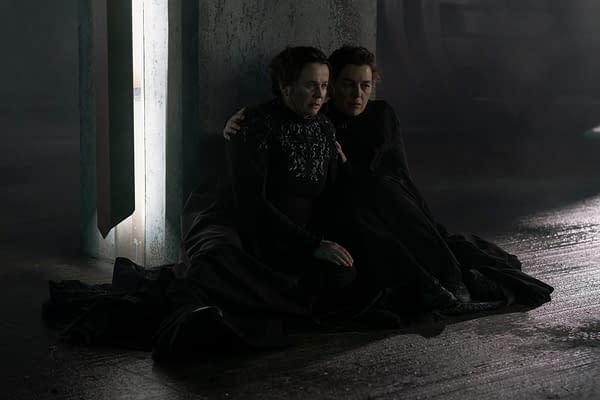
Composer Volker Bertelmann on Forging His Path on Dune: Prophecy
What intrigued you about 'Dune: Prophecy', and how did you get involved?
It was half a year before they started shooting 'Dune: Prophecy.' I got a call from the showrunner, Alison Schapker. She got in touch with me and asked if I might be interested in working on the series, and I wanted to know what the circumstances were. I knew there were two big films with Hans Zimmer doing the score, so I wanted to make sure the score is not expected to be the same thing, and I have my freedom to work on it. That was the case, and they also needed music for scenes on the set, so I came up with a couple of ideas before they started shooting. These themes I wrote for these performances somehow became the theme for the main title, like the vocals in there were a choir piece that I wrote in the very beginning for the Sisterhood scene in the beginning.
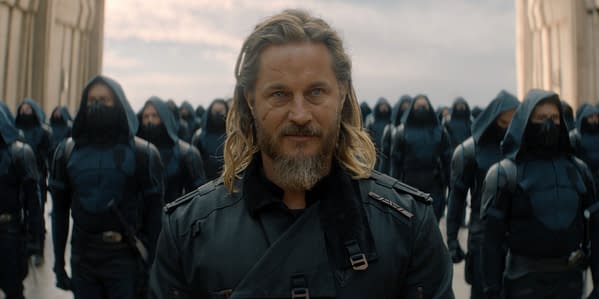
How did you immerse yourself in the world? Did you read the novels by Kevin Anderson, Frank, and Brian Herbert?
No, I didn't, because you can get very deep into those stories, and I'm a big fan of being a little bit distant from those stories. I also didn't watch any of the 'Dune' just to get all the information. I would rather be fresh, not attach too much to it, so that I can find a fresh approach, which helps me a lot.
What's it like working with Alison as a creative?
Working with Alison is fantastic. She's encouraging and has clear ideas, but she's also letting me do my thing, which is a good mixture, because a lot of times when you feel free to work, suddenly at the end, somebody comes and says, "No, we don't like what you've done here. That is always too late." I was quite pleased she gave me comments in certain areas where she wants to have a little more melody, or more melodic, than a [traditional] sci-fi score. Whenever she needed more emotions, she flagged that up, but at the same time, she let me make my sounds. She always encouraged me to go a little weirder in certain areas, and I loved that.
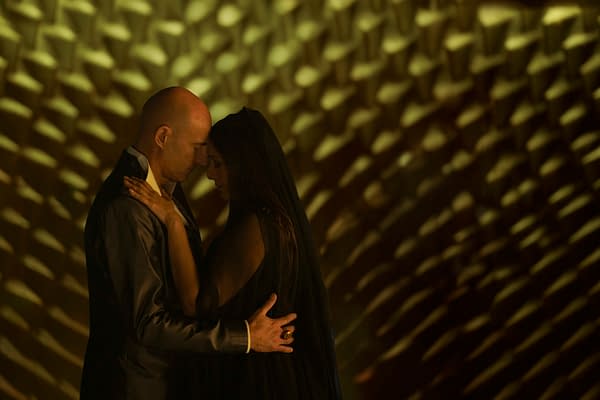
Was there any sequence that was more difficult to score?
I would say a lot of times, fighting scenes are difficult, because they need a certain pacing, then all the back-to-back action, and if it's longer than one minute, you somehow must find different tempos and sounds and balance it while not overpowering it. At the same time, you don't make it boring. It needs a certain way of structuring these cues, and then if you go too far, you have invested a lot of work, and then maybe the producers don't like it. You must push it a little bit, then send it to production and ask, "What do you think? Is that the kind of energy you like?" Then you finesse it in the end. These cues are much more difficult than, let's say, emotional cues or wide themes, because these are for a musician. Naturally, I would say, a dream.
How does the project of this nature differ? Is there a little more pressure, perhaps due to its epic nature, or does it depend on the genre?
What I loved about the challenge was that there are scenes with an obviously bigger scale, but also, somehow, in that bigger scale, there are a lot of stories that are very intimate family stories. That might sound a little bit disrespectful, but I love the way the scenes were much more intimate and dealing more with human emotions rather than big spaceships landing all the time with these soldiers marching. That is there, now and then, but I loved the undercurrent emotion that was somehow what I read in the script and where I felt it. That's a nice challenge to find…let's say the transition from the smaller moments into the bigger space and then back into the smaller moment.
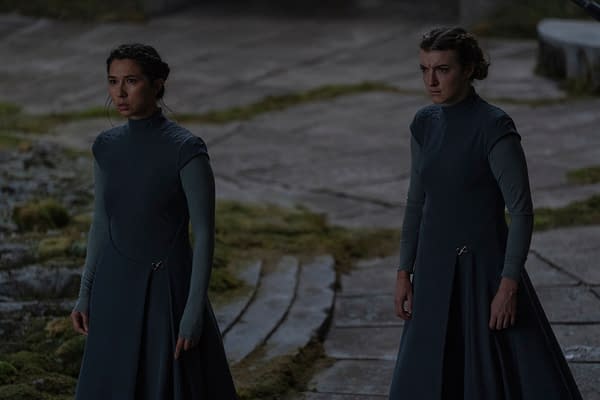
Season one of Dune: Prophecy, which also stars Travis Fimmel, Jodhi May, Sarah-Sofie Boussnina, Chloe Lea, Chris Mason, Shalom Brune-Franklin, Mark Strong, Jade Anouka, Edward Davis, Josh Heuston, Faoileann Cunningham, Aoife Hinds, and Mark Addy, is available on HBO Max with season two underway.






